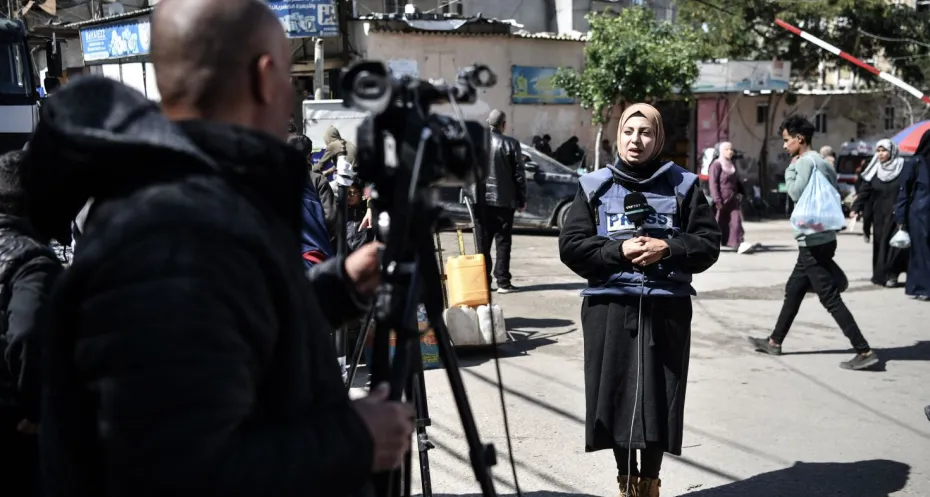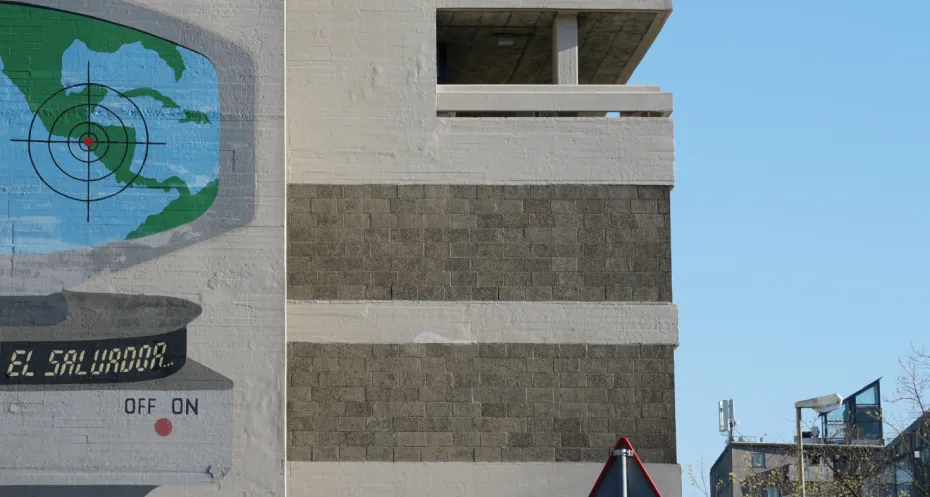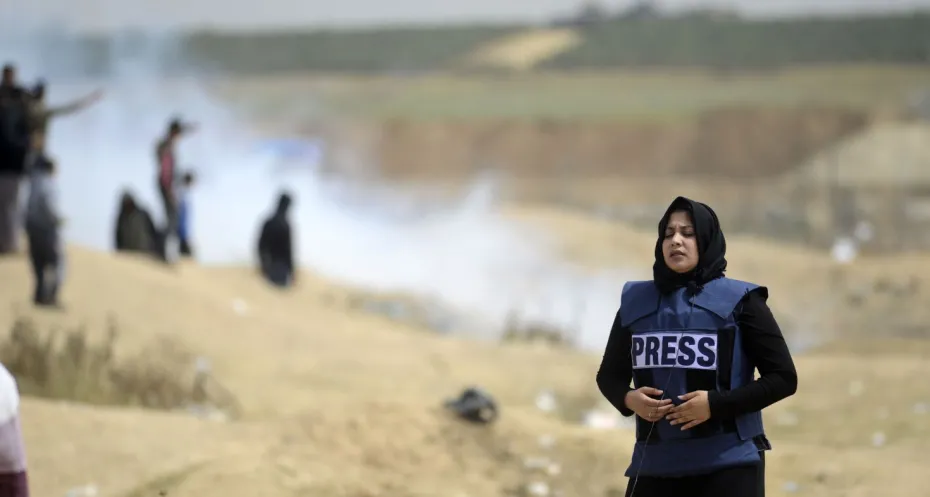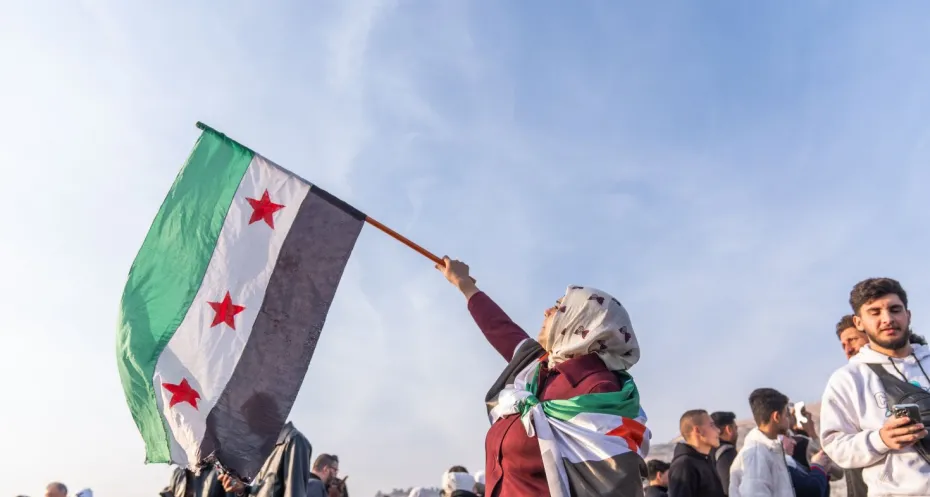Uniting MENA journalists: Cross-Border learning in conflict zones

From July 2024 to June 2025, the Maharat Foundation, supported by Free Press Unlimited and the European Union, brought together 20 journalists from eight countries in the Middle East and North Africa (MENA) for an innovative fellowship exploring “The Impact of Conflict and War on Media and Journalism in the MENA Region.”
The year-long fellowship offered a unique space for reporters from Syria, Lebanon, Jordan, Palestine, Egypt, Algeria, Tunisia, and Libya to share experiences, strengthen their skills, and tell stories about how conflict shapes journalism in their home countries. Over eight online sessions, the fellows tackled crucial aspects of conflict reporting ranging from safety and security protocols for journalists in dangerous environments to trauma-informed reporting that respects both sources and audiences.
“This fellowship showed that despite working in some of the world’s most dangerous environments, journalists in our region remain committed to truth, accountability, and public interest. Their stories reveal not only the risks they endure, but also the urgent need for stronger protection mechanisms and cross-border solidarity. Supporting these journalists is an essential investment in safeguarding the public’s right to know.” Roula Mikhael, Maharat's Executive Director.
Beyond the exchange sessions, each fellow received personalised mentorship throughout their production process. Mentors helped participants refine their editorial judgment, navigate ethical dilemmas, explore overlooked angles, and strengthen their source protection strategies. This hands-on support proved crucial in helping journalists transform concepts into publishable work that maintained high standards despite challenging circumstances.
Powerful stories from across the region
Twenty of the fellows successfully produced and published stories examining conflict's effect on journalism in their regions. Their work, ranging from articles to podcasts and video investigations, reached audiences across eight countries. Six exceptional works earned recognition and won monetary awards:
- On the Frontline: Motherhood and Journalism in Conflict Zones by Rowaida fallag
- Forty Years of Inciting Rhetoric by Radwan Khashim
- Behind Every Number… A Story: Humanizing Media Coverage During Wars and Conflicts by Bakr Abdul Haq
- Palestine at the Heart: The Shadow War Between Egyptian Media and Meta Investigative Report by Karim Hussain
- Messengers of Truth: Journalists Paying the Price for Free Speech by Hanane Khandagji
- How Israel Systematically Eliminates Key Witnesses by Lujain al-Absi
The jury praised the overall professionalism, depth, and diversity of the selected products about conflict's impact on media.
Building a stronger regional network
The fellowship culminated in a Community of Practice event in May 2025, bringing together the participating journalists, the Maharat Foundation, and Free Press Unlimited to develop recommendations based on their experiences covering conflict and war. These include:
- Establishing a regional consortium to coordinate protection efforts and share resources;
- Enhancing accountability mechanisms through institutions like the International Criminal Court and the International Federation of Journalists;
- Creating a centralised database for verified sources and legal documentation;
- Institutionalising emergency support systems, including legal aid and psychosocial services;
- Expanding training in research methods, legal literacy, and psychological resilience, with dedicated programmes for women journalists.
A model for regional media resilience
The fellowship’s results proved that investing in journalists’ capacity to report on conflict strengthens not only individuals skills but the entire media ecosystem and the need to inform the public during the most challenging times. By sharing expertise, mentoring one another, and building solidarity across borders, these journalists are helping to ensure that truth and accountability survive even in the most challenging environments.





